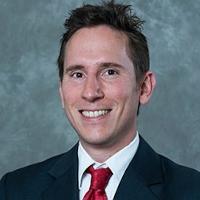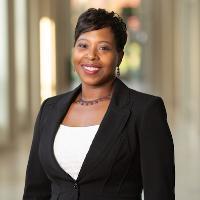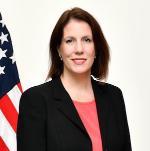Great Decisions Lecture Series
Great Decisions 2023
The Dyer Institute for Leadership and Public Policy, the Department of Political Science, the Osher Lifelong Learning Institute, and the Center for Global Engagement at Coastal Carolina University host the Great Decisions in Foreign Policy Lecture program. The lecture program is the oldest and largest grassroots world affairs educational program of its kind. A series of four lectures will take place during consecutive Saturdays in February, and each lecture is an opportunity to learn, discuss and debate international affairs, national security and U.S. foreign policy.
- Location: Brittain Hall, Room 112, Coastal Carolina University
- Time: 10-11:30 a.m.
- FREE AND OPEN TO THE PUBLIC. NO TICKETS REQUIRED.
- Download the Great Decisions 2023 Poster.
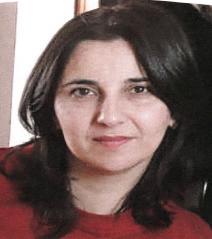
Feb. 4: Iran at a Crossroads - Dr. Suheir Daoud, Professor, Department of Political Science, Coastal Carolina University
By the fall of 2022, Iran was in a state of turmoil due to factors including: protests against government-enforced wearing of the hijab, a failing economy, and the looming succession of leader Ayatollah Khamenei. Abroad, renewal of the Iran nuclear deal seemed doubtful and tensions remain high between Iran, Israel, and Arab states. Many Iranians have lost hope of a better future, and the country seems at a crossroads. How should the United States deal with this? View slides from the presentation here: Daoud Iran at a Crossroads.
2018-200x200.jpg)
Feb. 11: China and the United States - Dr. Min Ye, Professor, Department of Political Science, Coastal Carolina University
For a decade, the United States and China have been in competition for the greatest global influencer. A major point of contention is the status of Taiwanese sovereignty, now even more relevant with the possibility that the Ukraine invasion may prompt China to take similar action with Taiwan. How will the United States engage a China which is increasingly seeking to expand its sphere of influence? View slides from the presentation here: Ye US-China Relations.
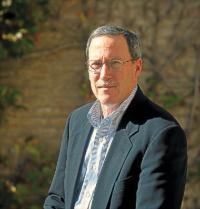 Feb. 18: Politics in Latin America – Dr. Rick Kilroy, Professor, Department of Political Science, Coastal Carolina University
Feb. 18: Politics in Latin America – Dr. Rick Kilroy, Professor, Department of Political Science, Coastal Carolina University
Electoral results in Latin America over the past four years have led many observers of the regional/political scene to discern a left-wing surge in the hemisphere, reminiscent of the so-called “Pink Tide” that swept the area some 20 years ago. But how much do these politicians actually have in common? What implication does their ascendency have for the region? View slides from the presentation here: KIlroy Latin America Politics.
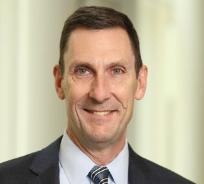 Feb. 25: War Crimes - Professor Thomas Nachbar, University of Virginia Law School and US Army Judge Advocate General School
Feb. 25: War Crimes - Professor Thomas Nachbar, University of Virginia Law School and US Army Judge Advocate General School
Russia's invasion of Ukraine has resulted in widespread charges of war crimes and calls for justice. But what exactly are war crimes? Opinions of what constitutes a war crime have evolved, as have ways to identify and punish the perpetrators. How will the war crimes committed in Ukraine be handled? View slides from the presentation here: Nachbar - War Crimes.
Great Decisions 2022
The Dyer Institute for Leadership and Public Policy, the Department of Politics, the Osher Lifelong Learning Institute, and the Center for Global Engagement at Coastal Carolina University host the Great Decisions in Foreign Policy Lecture program. The lecture program is the oldest and largest grass-roots world affairs educational program of its kind. A series of four lectures will take place during consecutive Saturdays in February, and each lecture is an opportunity to learn, discuss and debate international affairs, national security and U.S. foreign policy.
Download the Great Decisions Program for Spring 2022.
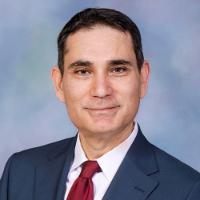 Feb. 5: Drug Policy in Latin America – Tony Payan, Ph.D., director of the Center for the United States and Mexico, Baker Institute for Public Policy, Rice University, Houston, Texas.
Feb. 5: Drug Policy in Latin America – Tony Payan, Ph.D., director of the Center for the United States and Mexico, Baker Institute for Public Policy, Rice University, Houston, Texas.
The issue of migration to the United States from Latin America has overshadowed the war on drugs, which has been underway for decades with little signs of progress. What are the roots and the bureaucratic logic behind today's dominant drug policies in Latin America? Is it time to reconsider punitive drug policies that disrupt supply chains and punish drug possession?
Click Here to see the recorded program.
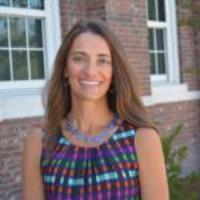
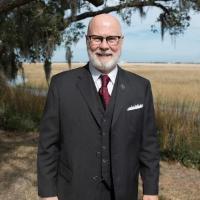
Feb. 12: Climate Change - Pam Martin, Ph.D., professor, Department of Political Science and Honors College Fellow, Coastal Carolina University
and Tom Mullikin, the SC Floodwater Commissioner.
The ideological divide in the United States on the subject of climate chan ge has impeded progress in curbing greenhouse emissions. But extreme weather e vents at both ends of the thermometer have focused attention on the consequences of inaction. What role will the United States play in future negotiations on climate?
Click Here to see the recorded program.
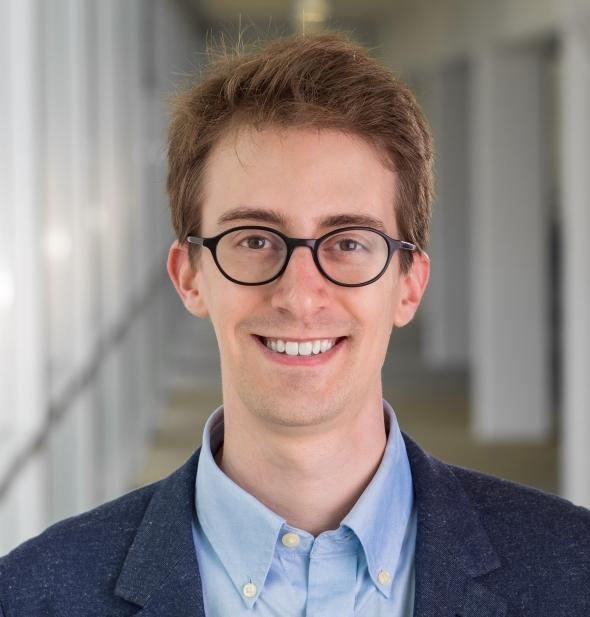 Feb. 19: The Quad Alliance – Jordan Roberts, Ph.D., assistant professor, Department of Intelligence and Security Studies, Coastal Carolina University
Feb. 19: The Quad Alliance – Jordan Roberts, Ph.D., assistant professor, Department of Intelligence and Security Studies, Coastal Carolina University
As part of the U.S. pivot to Asia, the United States has been in dialogue with Japan, Australia, and India in an effort to contain China. Recently, the Quad countries held joint naval exercises in the South Pacific. How effective will the actions of this alliance be?
Click Here to see the recorded program.
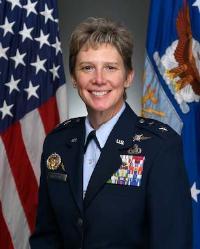 Feb. 26: Outer Space - Maj. Gen. Leah Lauderback, director of Intelligence, Surveillance, and Reconnaissance, Headquarters U.S. Space Force
Feb. 26: Outer Space - Maj. Gen. Leah Lauderback, director of Intelligence, Surveillance, and Reconnaissance, Headquarters U.S. Space Force
The launch of Sputnik 1 in October 1957 marked the beginning of the space era and of the space race between the United States and the Soviet Union. In the 21st century, there are many more participants in space, including countries such as India and China and commercial companies such as SpaceX. How will the United States fare in a crowded outer space?
2021 Lecture Series
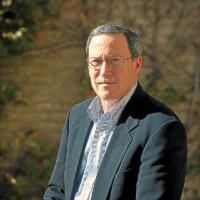 Feb. 6: Arctic Security – Dr. , Coastal Carolina University
Feb. 6: Arctic Security – Dr. , Coastal Carolina University
U.S. President Donald Trump left many scratching their heads when it was rumored that he was looking to purchase the large island nation of Greenland from Denmark. While any potential deal seems highly unlikely, the event shows the changing opinion within the U.S. government toward engagement with the Arctic region. Because of climate change, large sheets of arctic ice are melting, exposing vast stores of natural gas and oil. With Russia and China already miles ahead with their Arctic strategies, can the U.S. catch up?
Click Here to see the recorded program.
 Feb. 13: The Korean Peninsula – Ms. Soo Kim, Rand Corporation
Feb. 13: The Korean Peninsula – Ms. Soo Kim, Rand Corporation
The Korean Peninsula is facing a defining era. Attempts by South Korean President Moon Jae-in and U.S. President Donald Trump to repair the rift between North and South have lost any momentum as Pyongyang continues to test long-range missiles for its nuclear weapons program. As the rift between the U.S. and China grows further, South Korea may end up in the middle of the two superpowers. What does the future hold for the U.S. relationship with the ROK?
Click Here to see the recorded program.
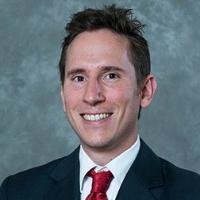 Feb. 20: Global Supply Chain and National Security – Dr. Michael Murphree, USC
Feb. 20: Global Supply Chain and National Security – Dr. Michael Murphree, USC
The shutdown of global supply chains due to the Covid-19 pandemic brought to the fore an issue with the high level of global economic interdependence: what happens when one country is the main source for an item, say face masks, and then can no longer supply the item? Countries suddenly unable to meet the demand for certain supplies are faced with growing calls for economic nationalism. What are some of the lasting effects that the pandemic could have on global supply chains and trade? How would this affect national security?
Click Here to see the recorded program.
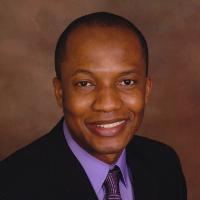 27: China and Africa – Dr. , Coastal Carolina University
27: China and Africa – Dr. , Coastal Carolina University
The Covid-19 crisis has put a massive strain on what was growing a positive economic and political relationship between China and the continent of Africa. As Chinese President Xi Jinping’s centerpiece “Belt and Road initiative” continues to expand Chinese power, the response to the spread of Covid-19, as well as the African government’s growing debt to China, has seen pushback. What are some of the growing economic and political issues between China and Africa?
2020 Lecture Series
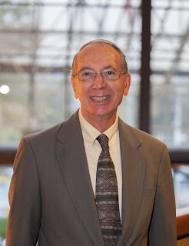 Feb. 1: Red Sea Security - Ambassador David Shinn, George Washington University
Feb. 1: Red Sea Security - Ambassador David Shinn, George Washington University
The Red Sea has remained vital for global trade since the time of ancient Egypt. Once home to the spice trade, the Red Sea now sees millions of barrels of oil a day transported across its waters. With major nations like China, France, Italy, and the U.S. building large ports and bases in the region, what does the future of the region look like? How important is Red Sea security for global security? Can the region be a place of global cooperation?
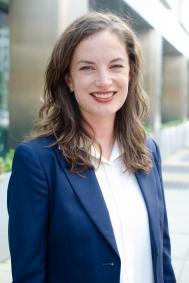 Feb. 8: India and Pakistan – Ms. Elizabeth Threlkeld, Stimson Center, Washington, D.C.
Feb. 8: India and Pakistan – Ms. Elizabeth Threlkeld, Stimson Center, Washington, D.C.
India’s Prime Minister Narendra Modi rode a wave of Hindu nationalism to a historic reelection in 2019. His first order of business was to revoke the special status granted to the Kashmir region, inflaming the rivalry between India and Pakistan. How will the Kashmir situation affect the region, both economically and politically?
Click Here to see the recorded program.
.jpg)
Feb. 15: Artificial Intelligence and Data - Dr. Paul Cerkez, CCU Department of Computer Science
Policymakers in many countries are developing plans and funding research in artificial intelligence (AI). Global growth is slowing, and not surprisingly, many policymakers hope that AI will provide a magic solution. The EU, Brazil, and other Western countries have adopted regulations that grant users greater control over their data and require that firms using AI be transparent about how they use it. Will the U.S. follow suit?
Click Here to see the recorded program.
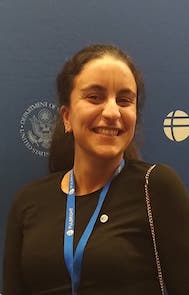 Feb. 22: Modern Slavery and Human Trafficking - Ms. Elhem Daadaa, Fulbright Language Teaching Assistant from Tunisia
Feb. 22: Modern Slavery and Human Trafficking - Ms. Elhem Daadaa, Fulbright Language Teaching Assistant from Tunisia
Almost every nation has enacted laws criminalizing human trafficking, and international organizations, governments, and NGOs sponsor a large variety of projects to curb trafficking and slavery. Billions of dollars have been allocated to these efforts. What is the international community doing to combat slavery and trafficking? What are the experiences like for those being trafficked?
Click Here to see the recorded program.
Companion reader: Companion reader textbooks are published by the Foreign Policy Association and may be purchased online. A limited number of books will also be for sale at the event for $40.
Parking: Parking on Coastal Carolina’s campus is based on a first-come, first-served basis. Please obey all posted campus parking information.
Handicapped parking: Designated parking for those with special needs is available in all campus parking areas. Patrons must display the required handicapped-parking permit.
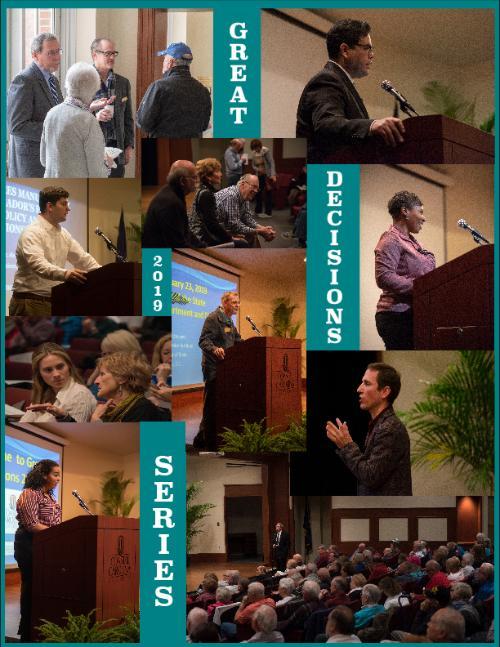
2019 Lecture Series
Decoding U.S.-China Trade
Though arguably the most advanced economy in the world, the United States still uses centuries-old numbers to measure trade. These antique numbers mangle understanding of the U.S.-China trade relationship, shrinking America’s true economic size and competitiveness, while swelling China’s. Bad numbers give rise to bad policies that ultimately kill U.S. jobs and cede market share to China. What other tools can the United States employ to counter China’s unfair trade practices? There are several available, yet they remain mostly unused. (Overview courtesy of Jeremy Haft)
Michael Murphree, Ph.D., is an assistant professor of international business at the Darla Moore School at the University of South Carolina. Murphree’s primary research interests include globalization, innovation in emerging economies, technology standards and market formation, and intellectual property rights. His research considers China in comparative perspective with other emerging economies and the developed West. He has conducted field research in China since 2007 and speaks fluent Mandarin. Murphree has published multiple peer-reviewed journal articles, as well as a book, chapters in edited volumes, and numerous commissioned reports for groups including the Global Commission on Internet Governance and the U.S. National Academies. His book (co-authored with Dan Breznitz), “The Run of the Red Queen: Government, Innovation, Globalization, and Economic Growth in China,” was published in 2011 and was the winner of the 2012 British International Studies Association Susan Strange Best Book Award and bronze medalist for the 2012 Axiom Business Book Award for International Business/Globalization. He teaches globalization and international business (IBUS 310) and comparative innovation systems (IBUS 429). He has also taught political economy of innovation in China and introduction to international political economy.
Cyber Conflict and Geopolitics
Cyber Conflict and Geopolitics PDF
Cyber conflict is a new and continually developing threat, which can include foreign interference in elections, industrial sabotage and attacks on infrastructure. Russia has been accused of interfering in the 2016 presidential elections in the United States, and China is highly committed to using cyberspace as a tool of national policy. Dealing with cyber conflict will require new ways of looking at 21st century warfare. Is the United States prepared to respond to such threats? (Overview courtesy of Richard Andres)
LaMesha Craft, Ph.D., holds a doctorate in public policy and administration with a concentration in homeland security policy and coordination. She joined the CCU staff in 2018. Before full-time teaching, she served 20 years of active duty in the U.S. Army as an all-source intelligence warrant officer. She has provided strategic and operational intelligence analysis of nation-state and non-state threats to U.S. interests, policy, data, and networks in/around Asia, Europe, the Horn of Africa, the Middle East and Southwest Asia. She has also worked overseas in Kosovo, Germany, Kuwait and Iraq. Craft has presented research in conferences and webinars on the threats of agro-terrorism and the potential for anomie; setting the conditions for community development and competence during crises; and emerging threats during post-normal times. Her most recent publication is a chapter titled, “Active Learning and Disaster Risk Reduction: Playing the Game of Your Life” published in Building Sustainability through Environmental Education, published by IGI Global in 2019.
The United States and Mexico: Partnership Tested
The United States and Mexico: A Partnership Tested PDF
The United States and Mexico have a long, intertwined history, with both countries prominently featured in each other’s politics and agendas. The war on drugs, immigration and trade issues have taxed the relationship over the years. What impact will new leadership in both countries have on this crucial partnership? (Overview courtesy of Michael Shifter and Bruno Binetti)
Abelardo Rodriguez Sumano, Ph.D., is a professor and researcher in the Department of International Studies at the Universidad Iberoamericana in Mexico City since January 2017. He is a member of the National System of Researchers of CONACYT Level II and a member of the International Studies Association and vice president of the Mexican Association of International Studies (2017-2019). He has taught in the University of California’s study abroad program; the University of San Francisco; the Center for Naval Superior Studies of the Navy of Mexico; and the Mexican National Defense College, among others. In the same way, he has taught courses for members of the Mexican Federal Public Administration. His research focuses on U.S.-Mexico relations, with a particular focus on security and national defense. Among his books are “In the Entrails of Goliath, the U.S. policy and its relationship with Mexico” (Aguilar, 2001); “The Bush Dynasty and the ‘New American Century’” (Aguilar 2003); “The Urgent Democratic Security. The Relationship of Mexico and the United States” (Taurus, 2008); he also co-authored with Rick Kilroy, Ph.D., and Todd Hataley, Ph.D., the book titled “North American Regional Security: A trilateral framework?” (Lynne Rienner 2012); and “Coordinator of Common Agendas and Differences in the Security of North America: Where do we come from? Where are we? Where do we want to go?” (CESNAV-UDG, 2012). He has published articles in a number of academic journals in the United States and Mexico. He has done research in Europe, Asia, the Americas, and of course, in Mexico. He earned a Ph.D. in international relations from the University of Miami, a master’s degree in foreign affairs from Georgetown University, and a bachelor’s degree in political science from the National Autonomous University (UNAM) in Mexico City. www.abelardorodriguez.com
State of the State Department and Diplomacy
State of the State Department and American Diplomacy PDF
During the Trump administration, the usual ways of conducting diplomacy have been upended. Many positions in the State Department have never been filled, and meetings with foreign leaders such as Kim Jong-un and Vladimir Putin have been undertaken with little advance planning. What effect are these changes having now, and how will they affect ongoing relationships between the United States and its allies and adversaries? (Overview courtesy of Nicholas Burns)
Kathryn Crockart is a career member of the senior foreign service currently serving as the Diplomat in Residence for the mid-Atlantic region (North Carolina, South Carolina and most of Virginia). In this role, she helps open access to career opportunities with the U.S. Department of State for a diverse cross-section of Americans interested in serving and representing our country. Crockart returned to the United States in August 2018 from her most recent overseas assignment at the U.S. Embassy in Islamabad, Pakistan (2017-2018), where she served as the minister counselor for public affairs. She led all American public diplomacy efforts in Pakistan through robust outreach and media engagement conducted by the Embassy and our three Consulates. While in Islamabad, Crockart also chaired the board at the U..S Educational Foundation in Pakistan, which administers large-scale exchange programs, including the largest U.S. government-funded Fulbright scholarship program in the world. Crockart is a public diplomacy-coned foreign service officer. Her other assignments include the U.S. Embassy in London (2014-2017), where she was the spokesperson and director of the press office. She served as principal officer at the U.S. Consulate in Medan, Indonesia (2011-2014), leading all American diplomatic efforts on the island of Sumatra. She has also served in Kuala Lumpur, Malaysia; Belize City, Belize; and both Frankfurt and Munich, Germany. The State Department has recognized Crockart with its individual Superior and Meritorious Honor Awards four times each. Prior to joining the State Department in 1999, she worked at The (Durham) Herald-Sun in her home state of North Carolina. Crockart received her BA with honors from the University of North Carolina at Chapel Hill. She speaks German, Indonesian and Malay, and has studied French.
2018 Lecture Series
Turkey: A Partner in Crisis
Great Decisions "Turkey: A Partner in Crisis"
Watch Coastal Carolina University's Turkey: a partner in crisis on Livestream.com. Of all NATO allies, Turkey represents the most daunting challenge for the Trump administration. In the wake of a failed military coup in July 2016, the autocratic trend in Ankara took a turn for the worse. One year on, an overwhelming majority of the population considers the United States to be their country’s greatest security threat. In this age of a worsening “clash of civilizations” between Islam and the West, even more important than its place on the map is what Turkey symbolically represents as the most institutionally westernized Muslim country in the world. CCU welcomes Nora Fisher-Onar, an assistant professor in global politics at Coastal Carolina University, to address this topic.
US Global Engagement and the Military
Great Decisions "US Global Engagement and the Military"
The global power balance is rapidly evolving, leaving the United States at a turning point with respect to its level of engagement and the role of its military. Some argue for an “America first” paradigm, with a large military to ensure security, while others call for a more assertive posture overseas. Some advocate for a restoration of American multilateral leadership and a strengthened role for diplomacy. Still others envision a restrained U.S. role, involving a more limited military. How does the military function in today’s international order, and how might it be balanced with diplomatic and foreign assistance capabilities? CCU welcomes CPT George Fust, a graduate student in Duke University’s American Grand Strategy program and soon-to-be instructor in the Department of Social Sciences at the US Military Academy at West Point, to address this topic.
Media and Foreign Policy
Great Decisions "Media and Foreign Policy"
Watch Coastal Carolina University's Media and foreign policy on Livestream.com. State and non-state actors today must maneuver a complex and rapidly evolving media landscape. Conventional journalism now competes with user-generated content. Official channels of communication can be circumvented through social media. Foreign policy is tweeted from the White House, and “fake news” has entered the zeitgeist. Cyberwarfare, hacking and misinformation pose complex security threats. How are actors using media to pursue and defend their interests in the international arena? What are the implications for U.S. policy? CCU welcomes Misti Williams, a lecturer of political communication in the Department of Communication, Media and Culture at Coastal Carolina University, to address this topic.
Global Health: Progress and Challenges
Great Decisions "Global Health: Progress and Challenges"
The collective action of countries, communities and organizations over the last 30 years has literally saved millions of lives around the world. Yet terrible inequalities in health and well-being persist. The world now faces a mix of old and new health challenges, including the preventable deaths of mothers and children, continuing epidemics of infectious diseases, and rising rates of chronic disease. We also remain vulnerable to the emergence of new and deadly pandemics. For these reasons, the next several decades will be just as important—if not more so—than the last in determining well-being across nations. CCU welcomes Fredanna M'Cormack McGough, chair of the Department of Health Sciences and associate professor of public health at Coastal Carolina University, to address this topic.
2017 Lecture Series
The Future of Europe
Great Decisions "Future of Europe"
A public lecture on “The Future of Europe” was presented on Saturday, Feb. 4, 2017 at 10 a.m. at the Myrtle Beach Education Center. The event, part of Coastal Carolina University’s Great Decisions in Foreign Policy Lecture Series, is free and open to the public.
Robert Henry Cox, director of the Walker Institute and professor of political science at the University of South Carolina, and Mariam Dekanozishvili, assistant professor of political science at Coastal Carolina University, will discuss the outcome of the United Kingdom referendum on EU membership. They will explain how the Brexit vote underscores the complexities of integrating a diverse continent and explore what post-Brexit Europe might look like, including its impacts on U.S. foreign policy.
Cox is a specialist on public policy in Europe and has written extensively on the welfare state, exploring the moral foundations of welfare programs.
Dekanozishvili teaches and researches European/EU politics and energy policy; her current research explores EU’s renewable energy policy and the European Neighborhood Policy.
Trade and Politics
Great Decisions "Trade and Politics"
A public lecture on “Trade and Politics” was presented on Saturday, Feb. 11, 2017 at 10 a.m. at the Myrtle Beach Education Center. The event, part of Coastal Carolina University’s Great Decisions in Foreign Policy Lecture Series, is free and open to the public.
Ambassador Patrick Duddy is the Semans International Visiting Professor in Duke University’s Office of Global Strategy and Programs and serves as a senior advisor for Global Strategy. He is also director of Duke University’s Center for Latin American and Caribbean studies. He teaches in both the Fuqua School of Business and the Sanford School of Public Policy. Before joining the Duke faculty, Ambassador Duddy served as a U.S. diplomat for nearly 30 years. At his retirement from the U.S. Foreign Service, he was one of the Department of State’s most senior Latin American specialists with exceptionally broad experience in trade, energy, public affairs and crisis management. From 2007 to 2010, he served as the U.S. Ambassador to the Bolivarian Republic of Venezuela for both President Bush and President Obama.
Nuclear Proliferation
Great Decisions "Nuclear Security"
A public lecture on “Nuclear Security” was presented on Saturday, Feb. 18, 2017 at 10 a.m. at the Myrtle Beach Education Center. The event, part of Coastal Carolina University’s Great Decisions in Foreign Policy Lecture Series, is free and open to the public.
Chris Ferrero, CCU assistant professor of intelligence and national security will discuss nuclear proliferation and U.S. nuclear security policy, exploring the Iran nuclear deal of 2015 as well as persistent threats from countries that challenge nonproliferation efforts such as North Korea, Russia, India and Pakistan.
Ferrero teaches classes on international relations, foreign policy and national security, specializing in U.S. foreign policy in the Middle East with particular focus on Iran. Prior to entering academia, he worked as an analyst on weapons of mass destruction at the U.S. Department of State and the Missile Defense Agency.
Conflict in the South China Sea
Great Decisions "Conflict in the South China Sea"
A public lecture on “Conflict in the South China Sea” was presented on Saturday, Feb. 25, 2017 at 10 a.m. at the Myrtle Beach Education Center. The event, part of Coastal Carolina University’s Great Decisions in Foreign Policy Lecture Series, is free and open to the public.
The Great Decisions in Foreign Policy Lecture Series presents a public discussion on the topic "Conflict in the South China Sea." Min Ye, associate professor of politics at CCU, will lead a discussion about the competing territorial claims in the South China.
2016 Lecture Series
The Rise of ISIS
Great Decisions "The Rise of ISIS"
A public lecture on “The Rise of ISIS” was presented on Saturday, Feb. 2, 2016 at 10 a.m. at the Myrtle Beach Education Center. The event, part of Coastal Carolina University’s Great Decisions in Foreign Policy Lecture Series, is free and open to the public.
Joseph Fitsanakis, Ph.D., an intelligence expert and assistant professor of politics at Coastal Carolina University, will outline the rise of ISIS in the Middle East. The discussion will focus on understanding the conditions that led to the rise of ISIS in the Middle East and the current state of the organization, as well as the challenges it poses for America’s foreign policy.
Prior to joining Coastal's Intelligence and National Security Studies program, Dr. Fitsanakis built the Security and Intelligence Studies program at King University, where he also directed the King Institute for Security and Intelligence Studies. An award-winning professor, Fitsanakis has taught and written extensively on subjects such as international espionage, intelligence tradecraft, counterintelligence, wiretapping, cyberespionage, transnational crime and intelligence reform.
Shifting Alliances in the Middle East
Great Decisions "Shifting Alliances in the Middle East"
A public lecture on “The Mind behind Islamic Extremism” was presented on Saturday, Feb. 13, 2016 at 10 a.m. at the Myrtle Beach Education Center. The event, part of Coastal Carolina University’s Great Decisions in Foreign Policy Lecture Series, is free and open to the public.
Suheir Daoud, Ph.D., an associate professor of politics at Coastal Carolina University, will discuss how the majority of Muslims are not extremist and why Islamic extremism is the primary national security and human rights concern of the world today. Her presentation will help guide participants in understanding this ideology and the historical background that caused the rise of Islamic extremism.
Since 2006 Dr. Daoud has been frequently published in the prestigious literature magazine Al-Adab (Beirut) and her op-eds in al-Akhbar, al-Quds al-Arabi and others. Her literary works have been widely reviewed in the Arab world and Europe. Some of her poems were translated into German and appeared in Iraqi poet Khalid Almaaly’s book After the Last Sky (al-Kamel, Frankfort, 2003) and excerpts from her book Ghazalah’s Windows was translated to Italian and played in Sardinia, theatre in Italy in December 12, 2009. In February 2005, Daoud was commissioned to write original poetry for the Washington, DC, Shakespeare Theater Company’s March 2005 presentation of The Tempest; also translated sections of the play from English to Arabic. Her latest book, Palestinian Women and Politics in Israel, was published by Florida University Press in May 2009.
International Migration
Great Decisions "International Migration"
A public lecture on “The Great Migration” was presented on Saturday, Feb. 20, 2016 at 10 a.m. at the Myrtle Beach Education Center. The event, part of Coastal Carolina University’s Great Decisions in Foreign Policy Lecture Series, is free and open to the public.
Scott Firsing, Ph.D., a teaching associate at Coastal Carolina University, will discuss the role of push/pull factors in the current culture of migration and lead attendees in a group discussion to understand global migration when considering complex factors such as conflict and national interests.
Dr. Firsing is an international relations/security expert focusing on foreign power involvement in Africa and the Middle East. Now teaching at The Citadel and Coastal Carolina University, he spent 2005-2015 living in South Africa. Dr. Firsing has traveled across the globe building a vast network in the academic, business and political circles. Dr. Firsing is a Program for African Leadership (Pfal) Fellow at the London School of Economics and Political Science (LSE). Dr. Firsing frequently contributes analysis on international relations to global media such as Al-Jazeera, AP, BBC, CNBC and others.
The United Nation's post-2015 Development Agenda and Leadership
Great Decisions "The United Nations"
A public lecture on “The United Nations” was presented on Saturday, Feb. 27, 2016 at 10 a.m. at the Myrtle Beach Education Center. The event, part of Coastal Carolina University’s Great Decisions in Foreign Policy Lecture Series, is free and open to the public.
Ambassador Paul Meyer, former Canadian permanent representative to the United Nations and the Conference on Disarmament in Geneva and director-general of the Security and Intelligence Bureau, will speak on the role of the United Nations today, 70 years after its founding, and its future, given the challenges the institution faces, such as peacekeeping, counterterrorism, nonproliferation and humanitarian intervention.
Ambassador Meyer was Director-General of the International Security Bureau (1998-2001) and Director-General of the Security and Intelligence Bureau (2007-2010). From 2003 to 2007, he served as Ambassador and Permanent Representative to the United Nations and the Conference on Disarmament in Geneva. His responsibilities at this centre for multilateral action on global issues spanned a variety of fields including human rights, humanitarian affairs, global health, and arms control and disarmament. In February 2011 he was appointed Fellow in International Security at the Centre for Dialogue and concurrently Adjunct Professor, School for International Studies at Simon Fraser University, Vancouver. He is also a Senior Fellow at The Simons Foundation. His research interests include nuclear non-proliferation and disarmament, outer space security, conflict prevention and cyber security.



